Google has been constantly evolving its product names over the years. Some of these changes have been minor, while others have been more significant. Let's explore these name changes and some of the reasons behind them.
Read More »
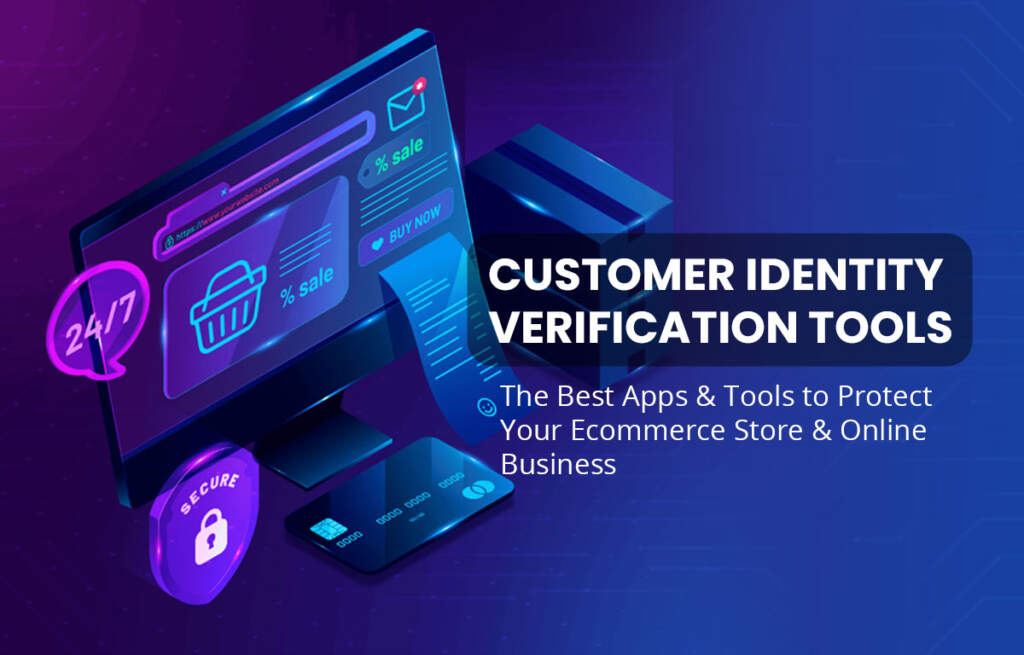
Ecommerce businesses come with challenges of their own. These days, online businesses are coming across dynamic challenges such as fraud, which results in huge financial losses. It has become essential for e-businesses and Shopify store owners to proactively deal with these threats and protect themselves from losses. One of the best and most basic ways to reduce fraud is to establish a solid identity verification mechanism. With systematic customer identity verification, businesses can know who their customers are and whether or not they’re using fraudulent or stolen cards.
The main benefits of Identity verification apps is that they help prevent fraud (and chargebacks), increase trust, and ensure regulatory compliance.
There are several ID verification tools and apps available out there - each of them has its pros and cons. As an ecommerce business, consider incorporating one of these into your business to ensure compliance with local regulations, accurate customer identity verification, as well as ensuring safe and secure transactions on your website or app.
Terminology Explained:
I'll be running through the most popular ID verification tools and briefly explaining what you need to know about them. Let’s get started:
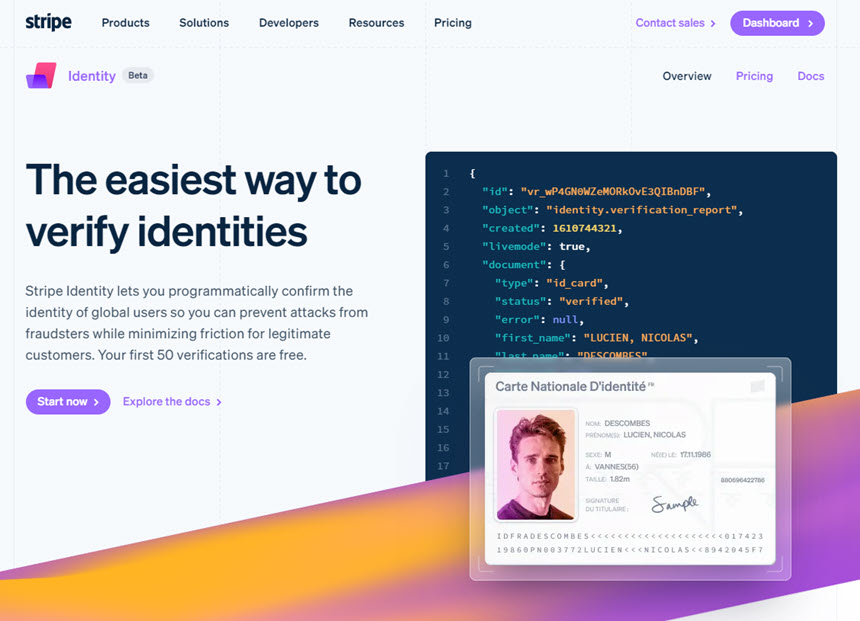
Website: www.stripe.com/identity
This add-on service from Stripe is a powerful tool that offers document verification, biometric authentication, and risk assessment. These features enable businesses to authenticate customer identities and detect potential fraudulent activities. By implementing Stripe Identity, ecommerce businesses and mobile apps can enhance security, protect sensitive customer information, and build trust and credibility with their customers
Integration: provides seamless integration with popular ecommerce platforms like Shopify and WooCommerce, making it convenient for businesses to implement and manage.
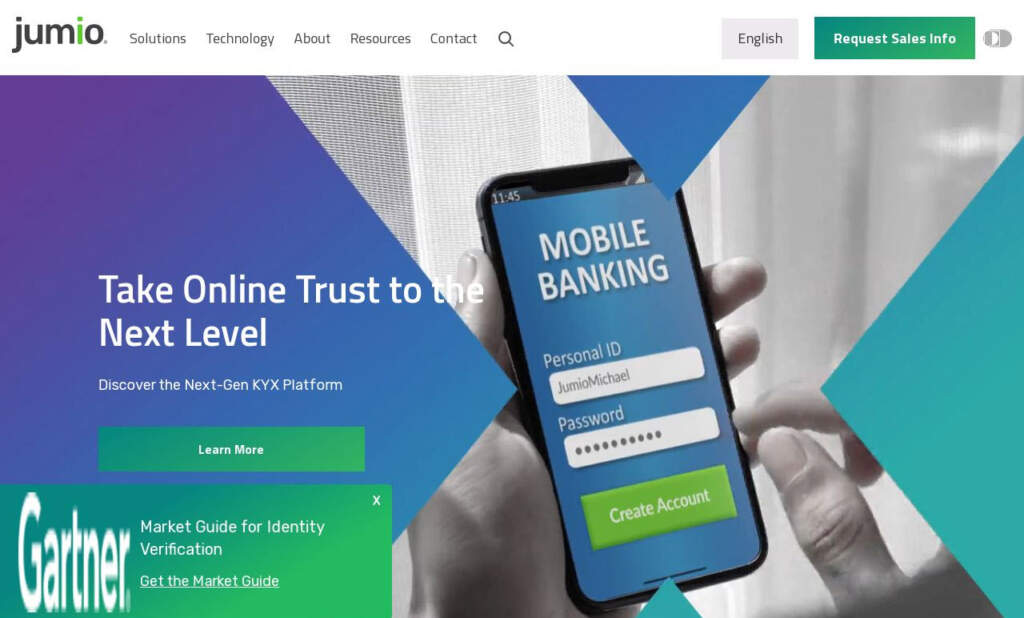
Website: www.jumio.com
Jumio offers end-to-end identity verification for ecommerce businesses and is based on its database of over 500 million identities across the globe. The whole idea of Jumio is to seamlessly integrate identity verification into an ecommerce business interface. It leverages machine learning and facial recognition to help reduce instances of fraud. The high cost of service of Jumio makes it difficult for small ecommerce businesses to sign up with this ID verification platform.
Integration: Jumio has plugins for popular ecommerce platforms like Shopify and WooCommerce etc.
Jumio's ID verification solutions are used by companies such as Coinbase, Monese, and Revolut.
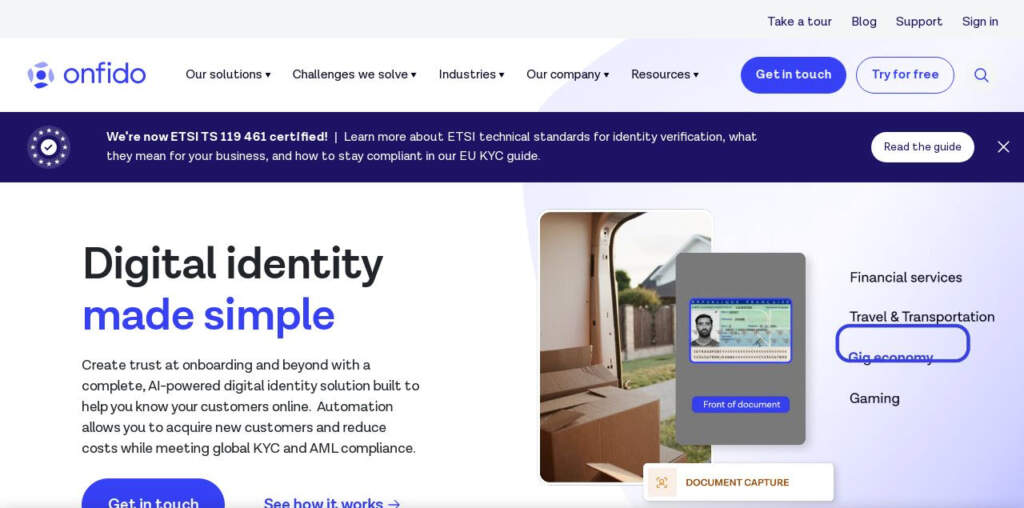
Website: www.onfido.com
Onfido helps businesses comply with security rules and regulations and assists them in offering a more secure, reliable service to customers. It helps consolidate KYC checks, saving the time and effort to process large volumes of identity verification requests. It is easy to use and integrate into existing systems and offers proactive customer support, making Onfido a preferred choice among ecommerce businesses. The complication and lengthy verification process are some of the main drawbacks of Onfido and may prove detrimental to user experience.
Integration: Onfido has plugins for popular ecommerce platforms like Shopify and WooCommerce etc.
Onfido's Verification Suite is utilized by companies like Remitly and Zipcar

Website: www.veriff.com
Veriff is an AI-powered, automated identity verification tool that leverages machine learning and cloud technology to help businesses connect with trustworthy customers. It delivers real-time accurate results and helps ecommerce businesses tackle security gaps instantly. Veriff renders numerous benefits to ecommerce businesses, but it also has two drawbacks - lack of customization and the high cost factor.
Integration: Veriff has plugins for popular ecommerce platforms like Shopify and WooCommerce etc.
Veriff's ID verification software is used by companies including Wise (formerly TransferWise), Turo, and Xolo.

Website: www.sheerid.com
SheerID helps e-businesses filter customers to secure exclusive offers, discounts, and promotions. It verifies the identity of customers via a custom tool that is created per the requirements of the business. The robust verification mechanism of Veriff is just what online businesses require to ensure only a select group of customers have access to exclusive offers. Setting up SheerID and integrating it with your existing system is complex and time-consuming.
SheerID's identity verification services are used by companies like Spotify, Adobe, and Target.
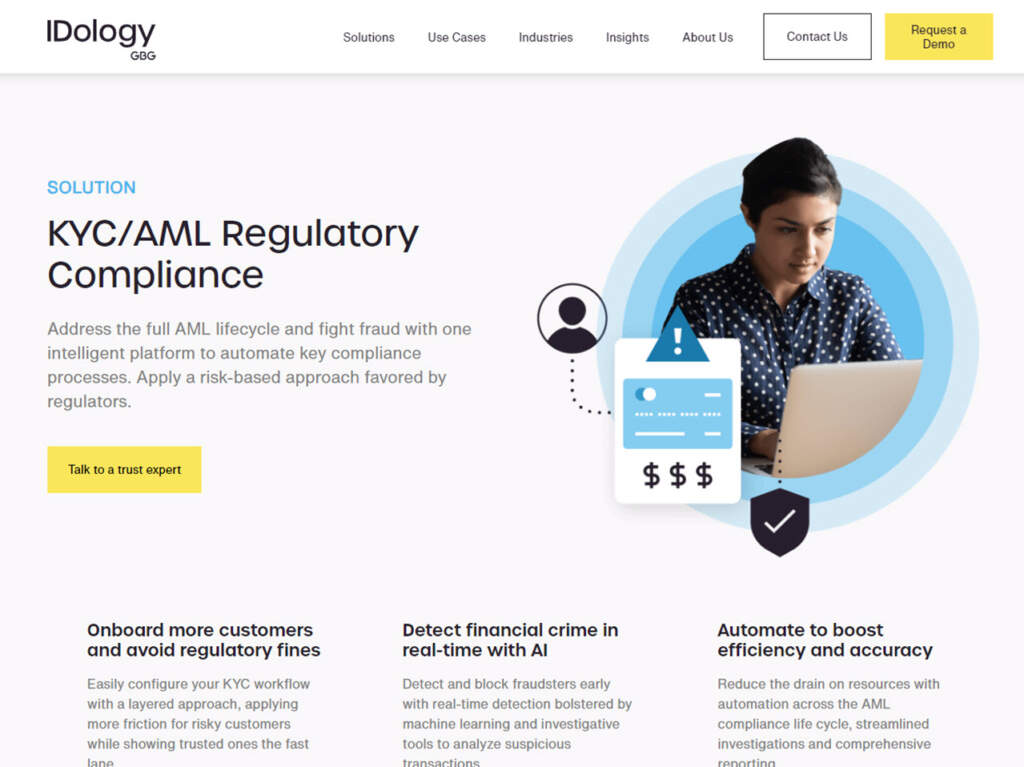
Formerly known as IdentityMind Global
Website: www.idology.com
IDology assists businesses in building, maintaining, and analyzing customer identities. This makes it easier for businesses to verify customer identities and conduct risk-based authentication, which helps detect and prevent fraud.
IDology KYC and AML solutions are used by companies such as BitPay, Paxful, and Uphold
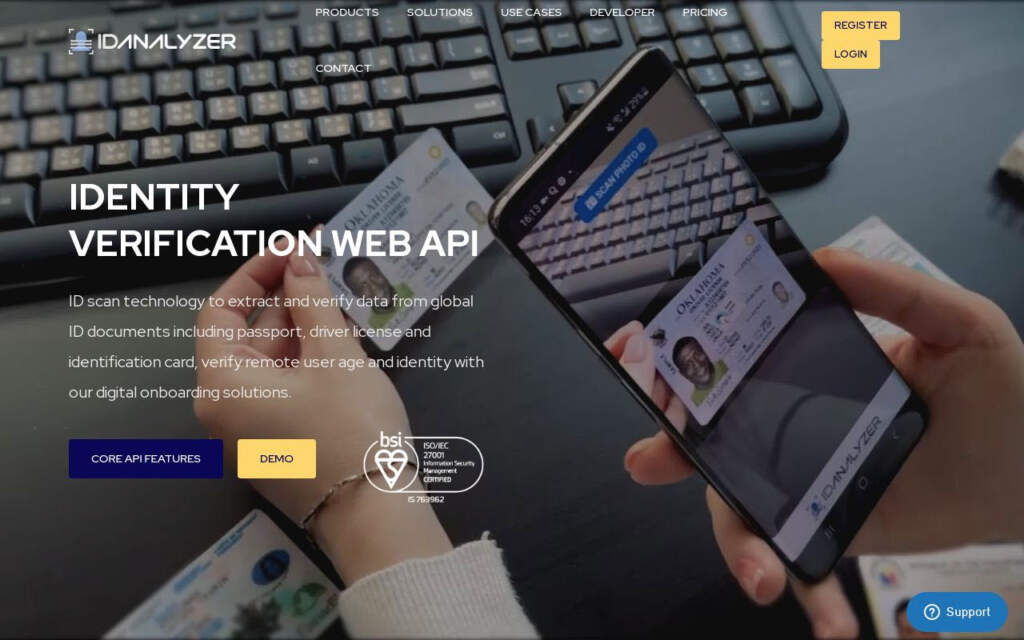
Website: www.idanalyzer.com
ID Analyzer is a comprehensive software platform that offers a wide range of solutions and products to assist e-commerce business owners in enhancing their operations. With features such as identity verification, document OCR scanning, and biometric verification, ID Analyzer ensures secure transactions and safeguards against fraud. By integrating ID Analyzer into their platform, e-commerce business owners can create a more intelligent and secure environment that protects both their customers and their business interests.
ID Analyzer's identity verification software is utilized by companies including Stripe, Airbnb, and Uber.
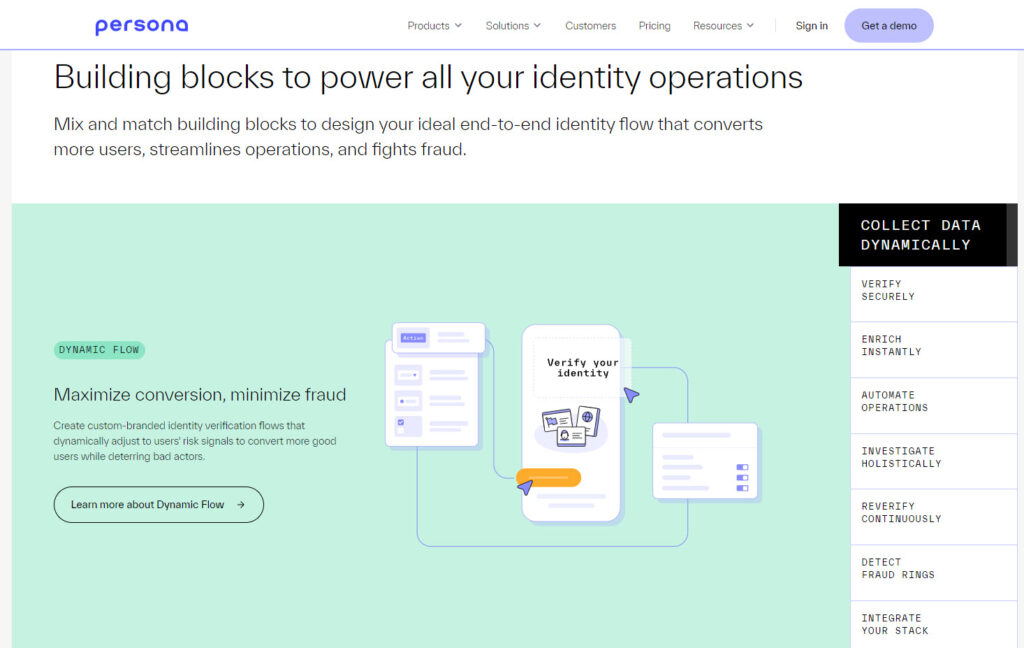
Website: https://withpersona.com
Discover Persona, an all-in-one identity verification solution that empowers businesses to streamline onboarding, enhance security, and maintain compliance. Automate KYC/AML processes, verify user ages, onboard businesses seamlessly, conduct manual reviews efficiently, trigger reverification to protect accounts, combat fraud at every stage, and streamline identity operations. Embrace Persona and experience the future of identity verification.
Key Use Cases:
Integration: API and no code flow builder options are available for a fully-customised identity verification flow on your own platform or app.
There are many scenarios where an ecommerce business would need this extra layer of protection. It's really about your need as a business and how this impacts you. Below are some examples of scenarios of when to consider adding this additional layer of security:
The first thing you need to consider is the type of verification you’d require for your business - whether it’s facial recognition, document scanning, or liveness detection. You can choose either of these depending on the nature and scale of your business.
The next aspect is the level of accuracy and fraud protection you’d need to ensure the safety of your business. Apart from this, you’d also have to consider the cost of service (both the subscription cost and per transaction costs), the ease of integration with your existing platform. You can then zero into a customer verification tool for your business.
Fraudulent transactions cost businesses a lot from a financial and goodwill perspective. Customers are aware of and prefer secure, safe websites where their sensitive details are not vulnerable. Apart from securing your business, a customer identification tool can help you build trust in your target audience.
Stripe Identity is an additional paid-for service that offers built-in risk control and fraud prevention features. It captures images of the user and their photo ID to verify customer identity. It also uses this captured data to improve its biometric verification technology. But if you’re looking for more advanced customer identity verification mechanisms, consider other tools, like Jumio, Onfido, and other examples we’ve mentioned above.
While it's not an identification tool, dynamic 3D Secure is a feature from Mollie that helps provide additional layers of security to online transactions. The 3D Secure mechanism embeds the authentication process in the checkout flow, resulting in a frictionless authentication flow. It also helps users reduce the risk of losing money via chargebacks. Integrating Dynamic 3D Secure into your existing systems can help elevate the overall security of your online business.
Paypal, Square, and Payline are some additional payment service providers that offer ID verification as a paid-for feature on their platforms.
The requirements, nature, and scale of your business are some essential aspects you have to consider when choosing an ID verification tool for your business. The best tool is the one that perfectly fits your criteria and is priced accurately, too.
Investing in identity verification tools can maximise the security of your business, increase conversions and improve the quality of services you offer to your customers.

With 20+ years in eCommerce and a proven history of scaling a 7-figure business, I know how to transform challenges into opportunities for growth. As the former Head of E-commerce for a European food tech company, I managed 14 e-shops across Europe and South Africa. Now, I specialise in helping professionals like you unlock the potential of AI automation for your business.
Over 1,800 students have already enrolled in my online courses to master these skills. Whether you’re looking for hands-on AI automation services or want to upskill with my courses, I’m here to help. Connect with me on LinkedIn to discuss your needs or join my programs to start building smarter, more scalable systems today!
Google has been constantly evolving its product names over the years. Some of these changes have been minor, while others have been more significant. Let's explore these name changes and some of the reasons behind them.
Boost SERP rankings, improve your website's performance and SEO with these tips on how to get your PageSpeed score in the 90s. Get more traffic to your website and convert visitors on your "money pages".
Learn what makes a perfect product page (PDP). Discover the key elements of it, and see how to optimize your product pages for conversions.